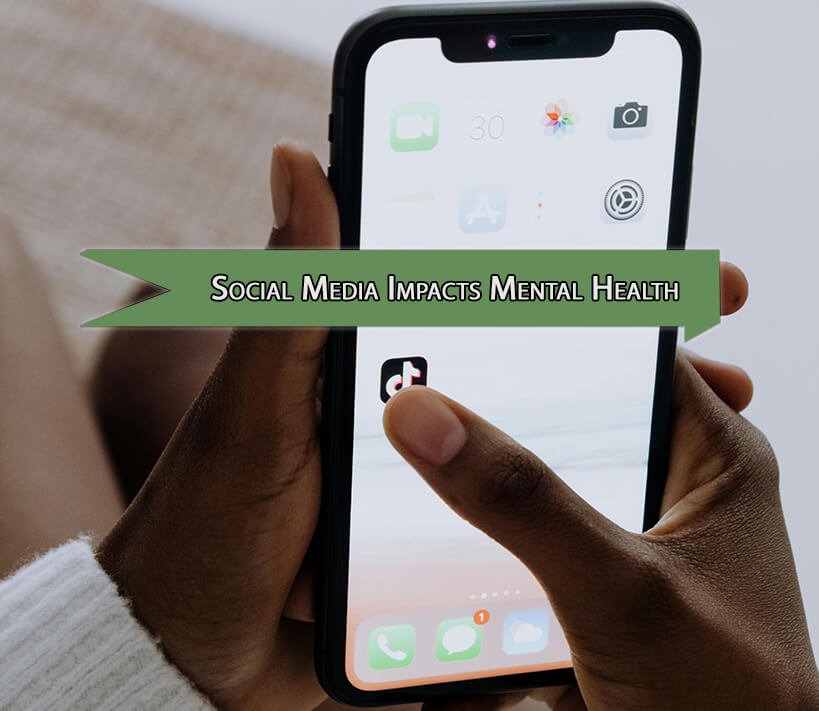It starts innocently enough. You wake up, rub your eyes, and before your feet even hit the floor, your hand reaches for the phone. You pick it up to check notifications and start scrolling through social media. Maybe it is a slow afternoon or a break between tasks, you are not even sure. One reel turns into another. Then another. Time starts to blur. Ten minutes. Thirty. An hour. And somewhere in the middle of all that scrolling, you pause and realize you are not laughing, not learning, not even present. You are just there, swiping, staring, sinking deeper into social media that rarely feeds you back.
Our tea goes cold. The task we meant to finish? Still pending. That tight, uneasy feeling in our chest? Thats low-grade anxiety, quietly building in the background, more common than we admit.
Yes, social media has transformed the way we love. It connects us in ways we cannot even notice, how it shapes our thoughts, behaviour, and even our actions. At Psychoaura, we believe in embracing the good that technology offers without ignoring the cost it can have on our inner peace. This article takes a closer look at how social media affects our mental well-being, often without us even noticing.
The Validation Loop
We feel good when people like or comment on our posts. That little spark of dopamine gives us a boost. “Someone noticed me. I matter”. And platforms are built to feed that craving. It becomes a cycle: Post. Wait. Refresh. React. But what happens when the likes do not come? Disappointment. Insecurity. A quiet voice in our head starts whispering: “Maybe I am not interesting enough”.
Comparison is a Thief
We have all done it. Scrolling through our feeds, seeing others at beach resorts, nailing career goals, looking flawless, and we start thinking: “What am I even doing with my life?” But here is what most of us forget: social media is curated.
The Loneliness Paradox
Due to social media, we can connect with hundreds or thousands of people, but most of those connections lack emotional depth. You scroll through updates, see vacation photos, send birthday wishes, and celebrate achievements, but when you are genuinely feeling low, who is here to talk to? Who listens? That is where the emotional gap begins to grow, and it leaves behind a deep sense of emptiness. It does not crash loudly. It slips in softly, settles deep, and slowly starts to feel normal.
When Your Brain Feels Full but You Have Done Nothing
Our brain is not designed to process endless streams of content all day. At one time, you are watching a cooking video, the next you are laughing at a meme, then absorbing a tragic story, followed by a heated political opinion. This non-stop switch in emotions and attention is exhausting. You start losing focus. Emotions feel jumbled. Resting becomes hard. This overstimulation does not just make you tired; it drains your ability to cope with life offline, too.
When Screens Steal Sleep
You tell yourself, “Just one more video”, and suddenly it is 2 Am. Sounds familiar? When we use a screen, it can affect the melatonin production, the hormone that helps us sleep. Without enough rest, our moods swing. Anxiety builds, irritability increases.
The Pain of Online Cruelty
Due to the misuse of social media, it acts as a battleground for many people. Cyberbullying, exclusion, nasty comments, they sting deeply. And because it is online, people often forget there is a real person on the receiving end. Some wounds are not visible. But they are there. Harsh words can remain in Someone mind for days, weeks, or even years and can affect their mental health. We can support others by giving a supportive message or a kind comment. If we all posted with more empathy, we could help create a space where people feel heard instead of hurt.
When Social Media Supports
To be fair, social media is not all bad.
1. There are support groups where people talk about depression, anxiety, and grief without judgment.
2. Therapists are sharing free tips through videos, blogs, and reels, making mental health knowledge more accessible than ever.
3. People use their accounts to express art, poetry, or pain and that creative outlet can be deeply healing.
4. For minorities and marginalized voices, social media gives a platform that often does not exist elsewhere.
Conclusion
Social Media becomes part of our lives as it provides entertainment, education, and connection. But like everything has its pros and cons, social media also affects our minds more than we realize. We do not need to quit or disappear from the digital world. What you do need is awareness. You can question yourself: Am I using social media? Or is it using me? Your mental health matters, even online. Choose what nourishes you. Speak kindly. Pause when needed. And remember, real life happens off-screen.
FAQs
How exactly does social media affect mental health over time?
Social Media impacts mental health in many ways if we are not using it with awareness. If we are constantly online, then we can face emotional consequences. We begin to feel anxious from the pressure of not getting enough engagement, and even slip into depression. Excessive use of social media can lead to mental burnout. After a long time, this rollercoaster wears the brain down, and we can become mentally and emotionally exhausted, even when we have not done anything physically tiring.
What is the loneliness paradox?
Through Social Media, you can connect with hundreds or thousands of people, but most of those connections lack emotional depth. You scroll through updates, see vacation photos, send birthday wishes, and celebrate achievements, but when you are genuinely feeling low, who is here to talk to? Who listens? That is where the emotional gap begins to grow, and it leaves behind a deep sense of emptiness. Genuine connection requires presence.




